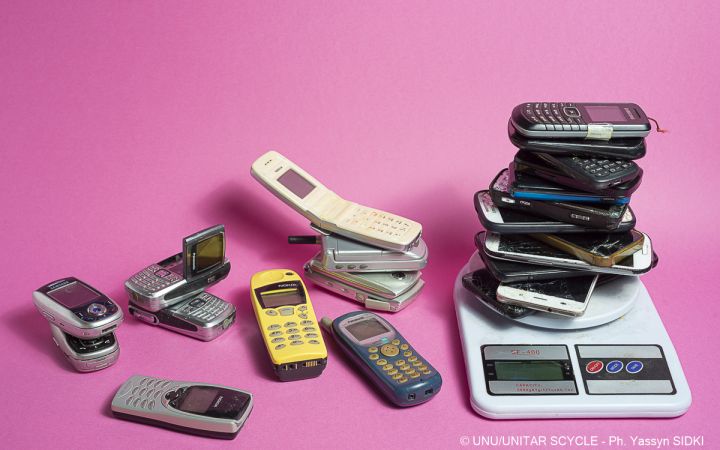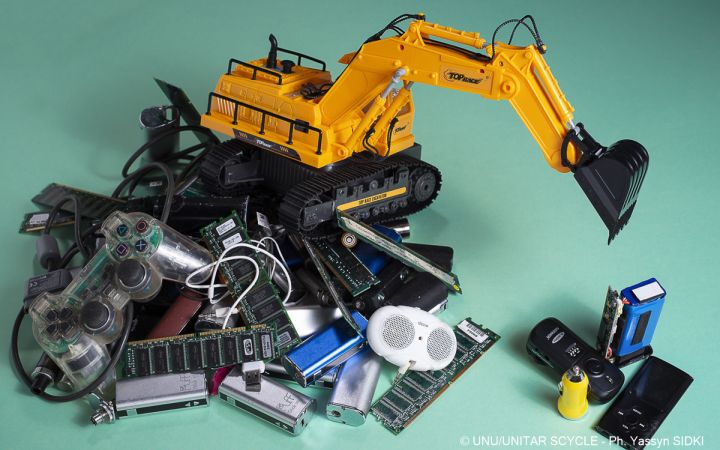Electrical and electronic equipment have revolutionized how we live, work, and communicate, and are today integrated into our daily lives. However, as this equipment reaches the end of its life cycle, e-waste generation is inevitable. Recognizing the need to address e-waste generation and recyclability, UNITAR Sustainable Cycles (SCYCLE) Programme and Microsoft joined forces to tackle this issue. The collaboration, rooted in a shared vision for sustainability, has yielded tangible results.
The partnership between UNITAR SCYCLE and Microsoft began in 2022 with a bold ambition: to collect efficiency rates for materials commonly recycled in electronics, a data set that, to their knowledge, had never been captured before.
Under UNITAR SCYCLE’s technical leadership, extensive research was conducted in Italy and Germany, working closely with recyclers to understand their processes and collect primary data, running trials, and interpreting data. One of the key achievements of this process was the preparation of a report on the Recyclability rates of key materials and components in standard WEEE treatment in 2024, and published in 2025, allowing researchers and other stakeholders in the industry to benefit from these insights.
This is data that didn't exist before. It was very important for us to complete this work with UNITAR to create a dataset that we could use in the evaluations of our products' recyclability and to make decisions. […] We wanted to make that data public so that all of our peers could access it and it could be used for the rest of the industry as well.
The unbiased scientific approach of UNITAR SCYCLE ensured the integrity of the data, free from any potential conflicts of interest. This independence was crucial in liaising with stakeholders and partners and obtaining accurate and reliable information.
As with any pioneering project, there were lessons learned along the way. The initial project in Italy served as a learning ground, revealing success factors and areas for improvement. Based on this learning, the team refined the data collection and analysis processes for the subsequent segment in Germany. One significant lesson was the importance of estimating implementation timelines. Collecting new, original data proved to be more time-consuming than anticipated, highlighting the need for better timeline management in future projects.
Moreover, the project focal points from Microsoft praised UNITAR SCYCLE’s personnel professionalism and extensive experience, which was crucial for successful project implementation. Their journey in e-waste recycling has helped fill a data gap for a global challenge that affects us all and demands our attention.



